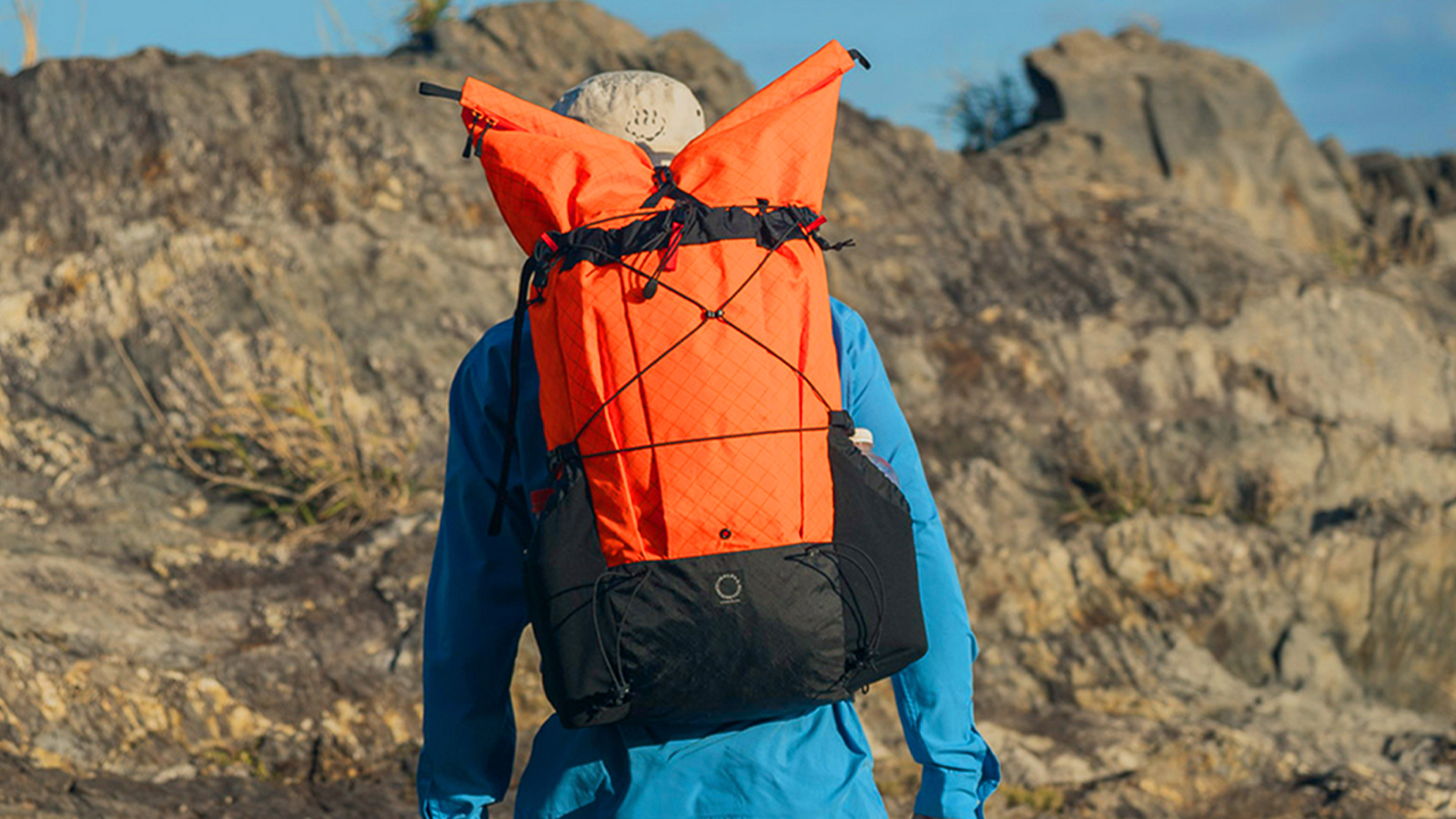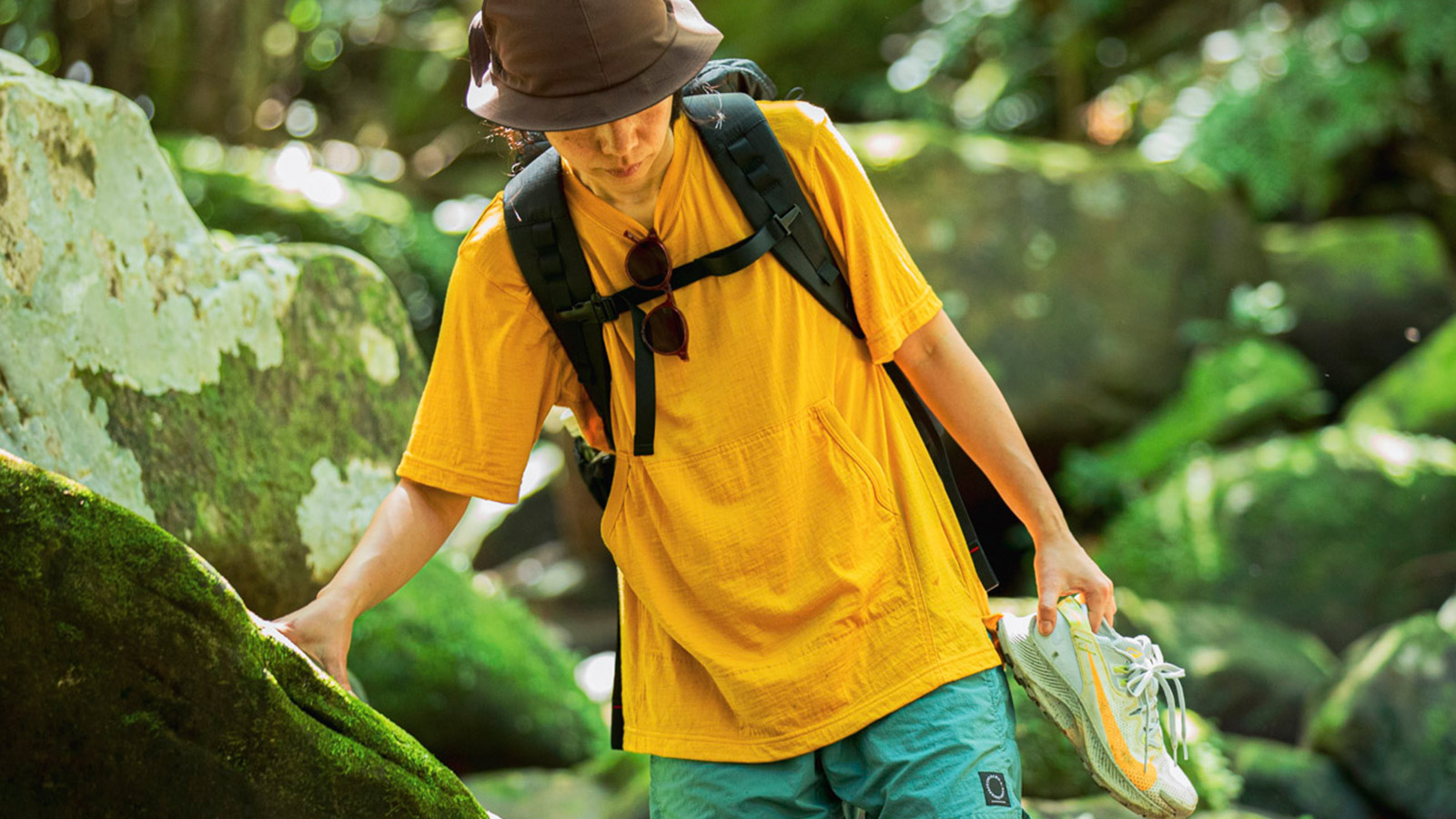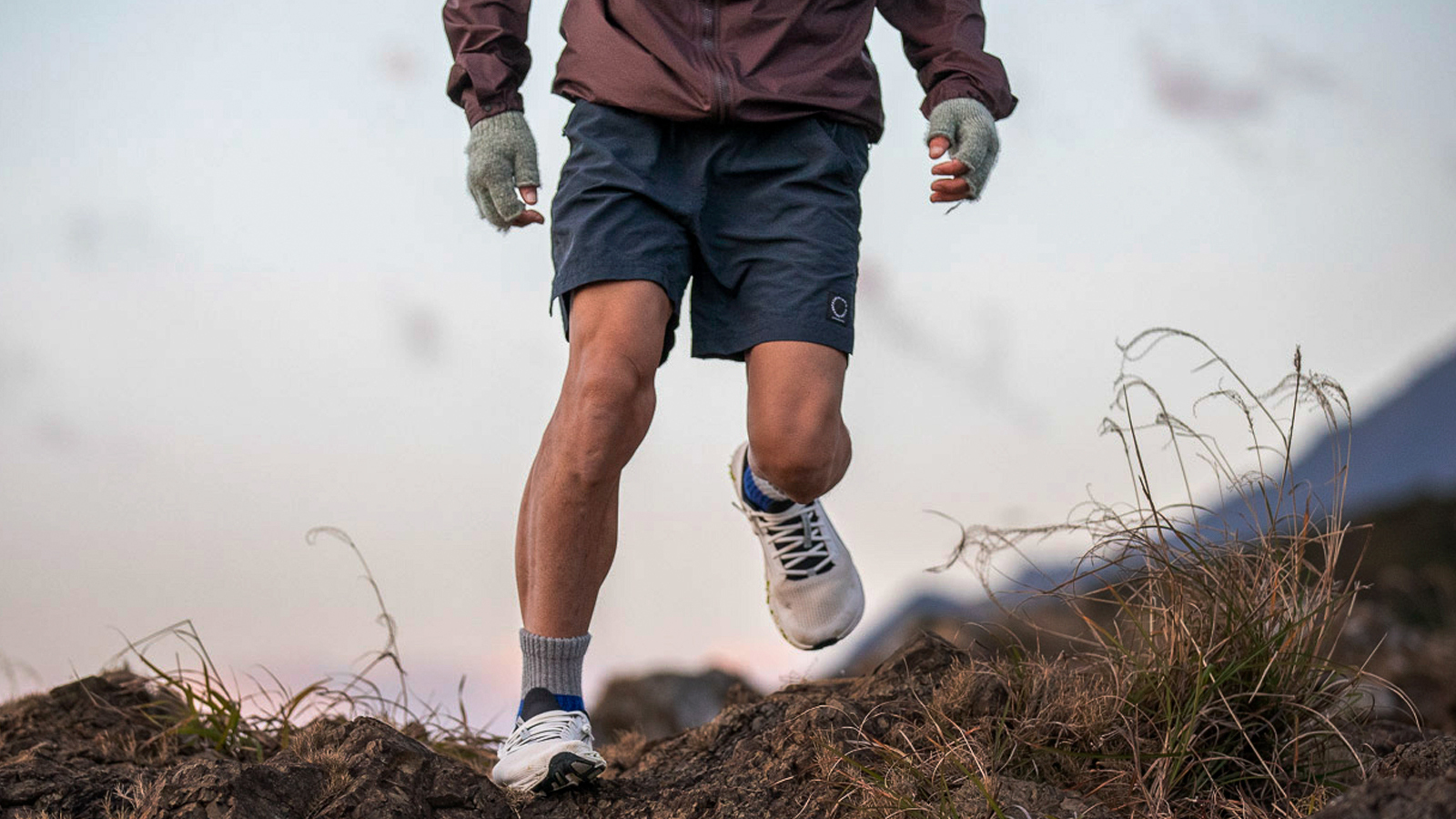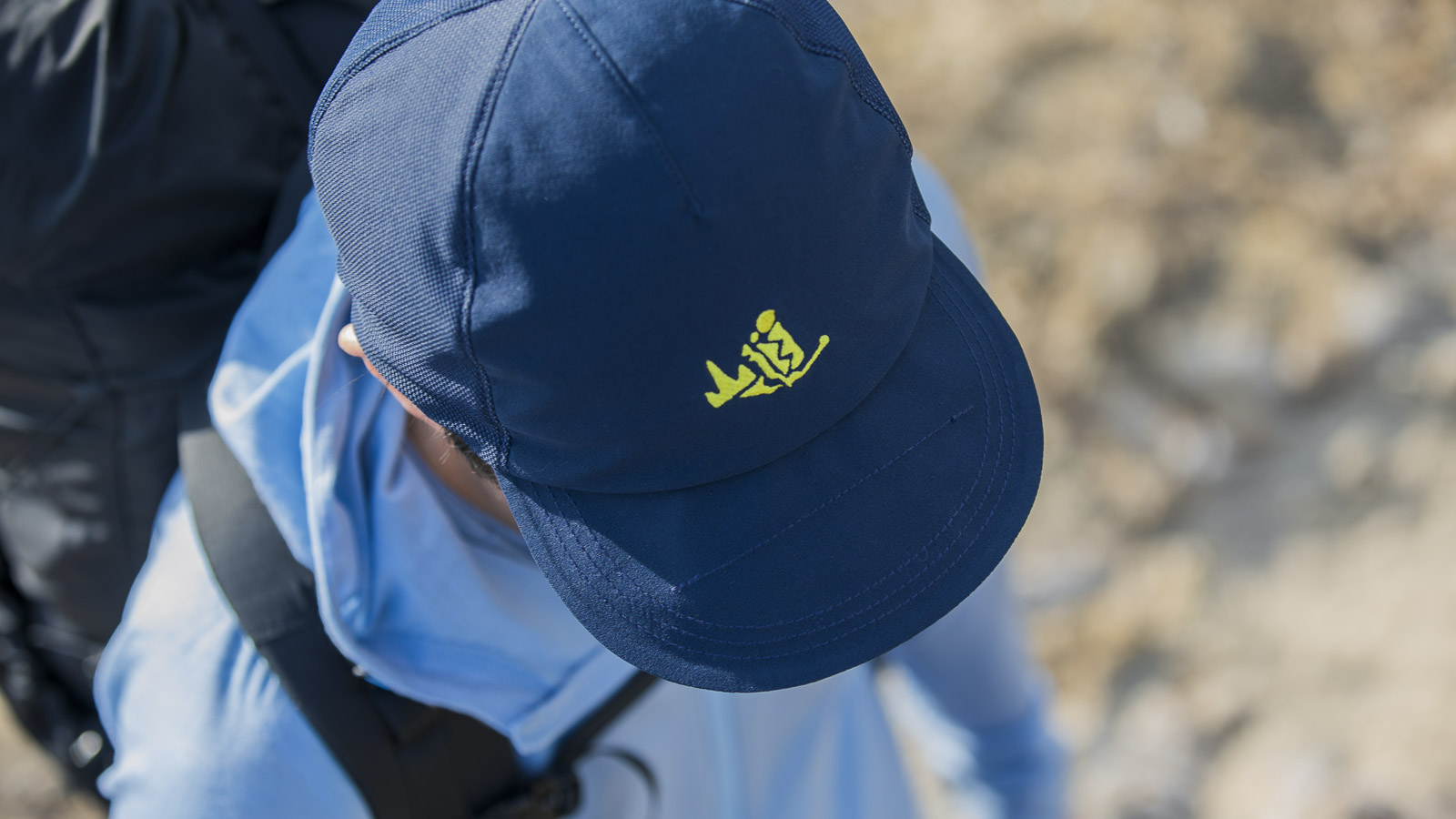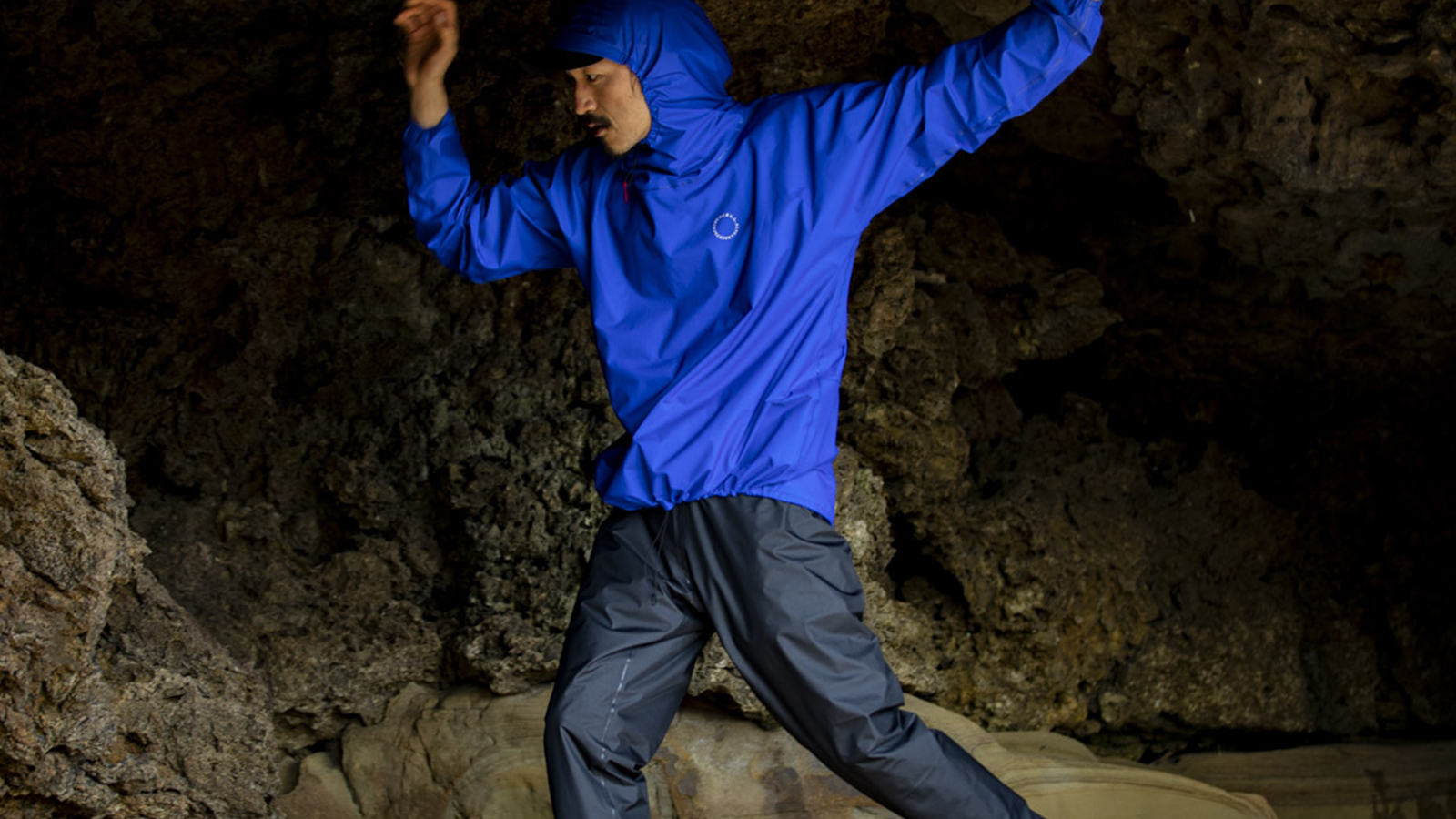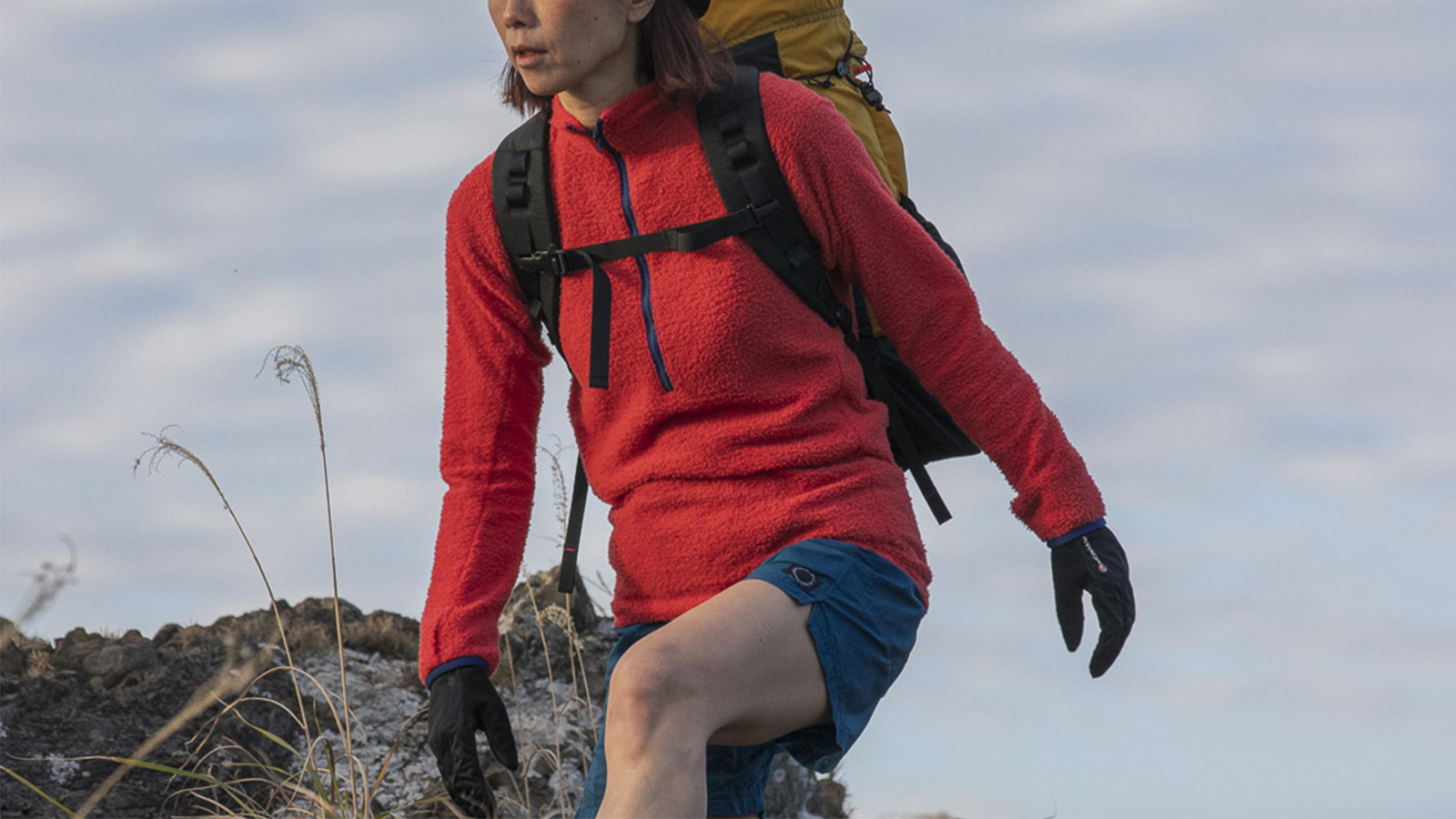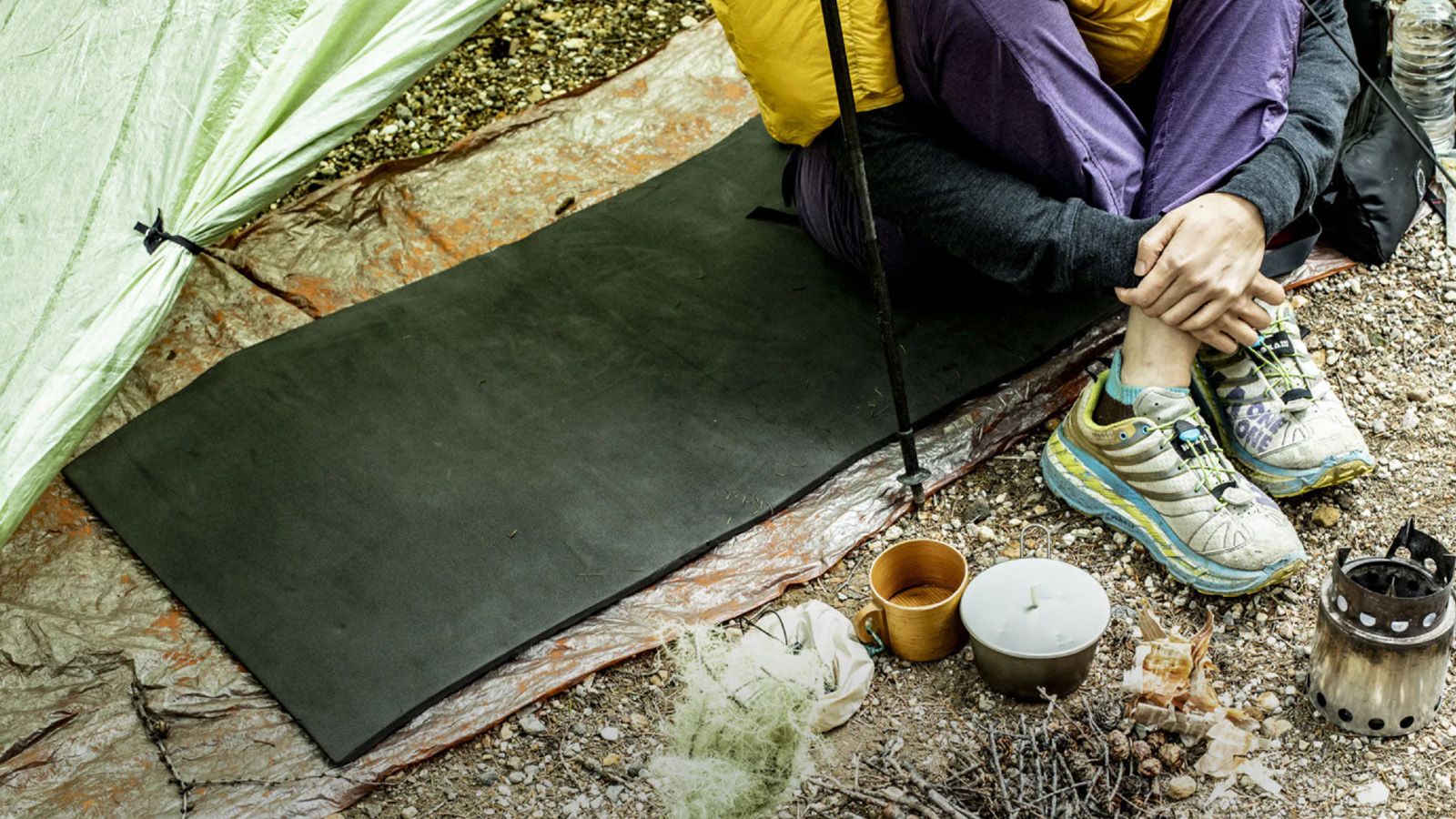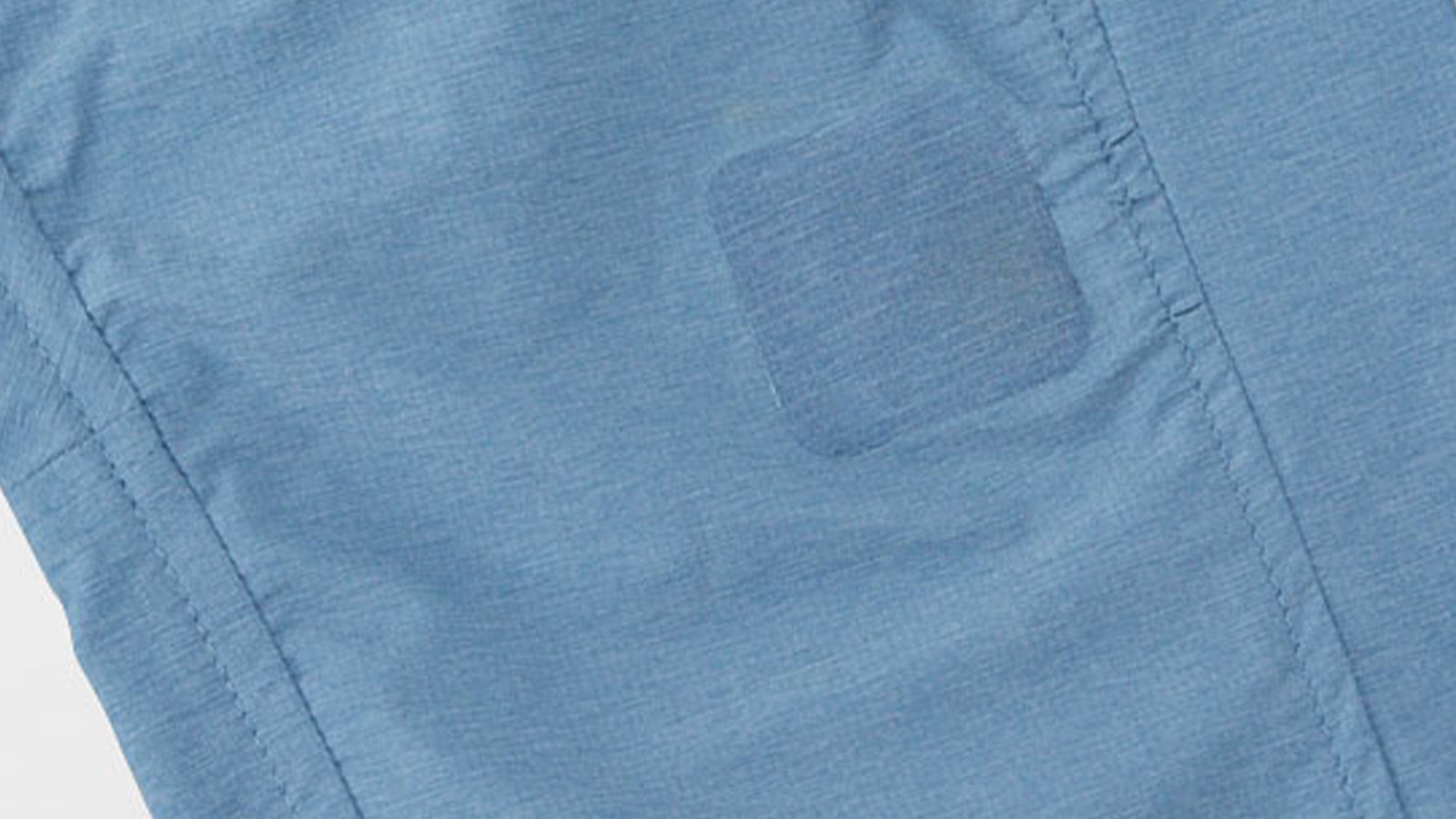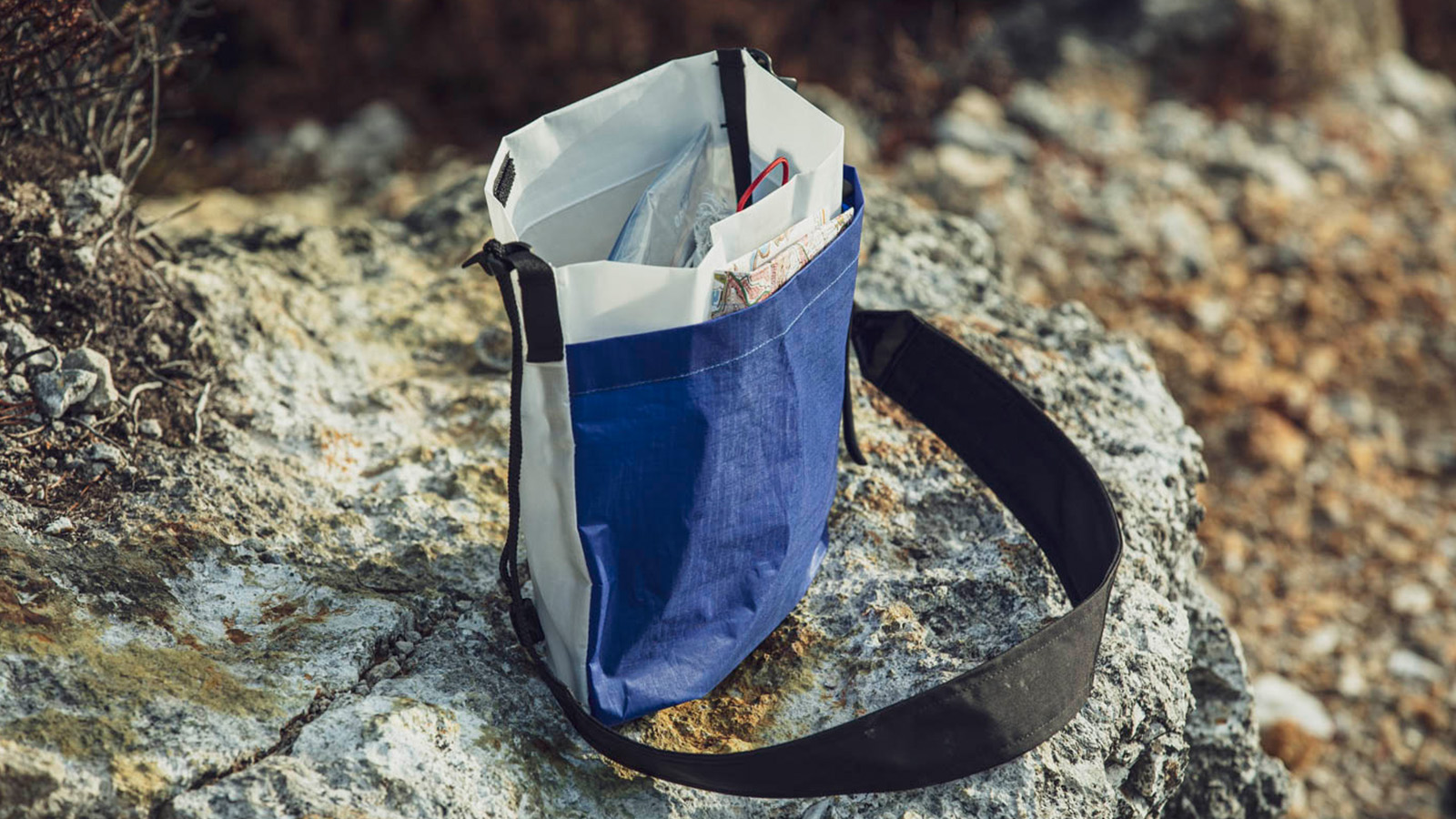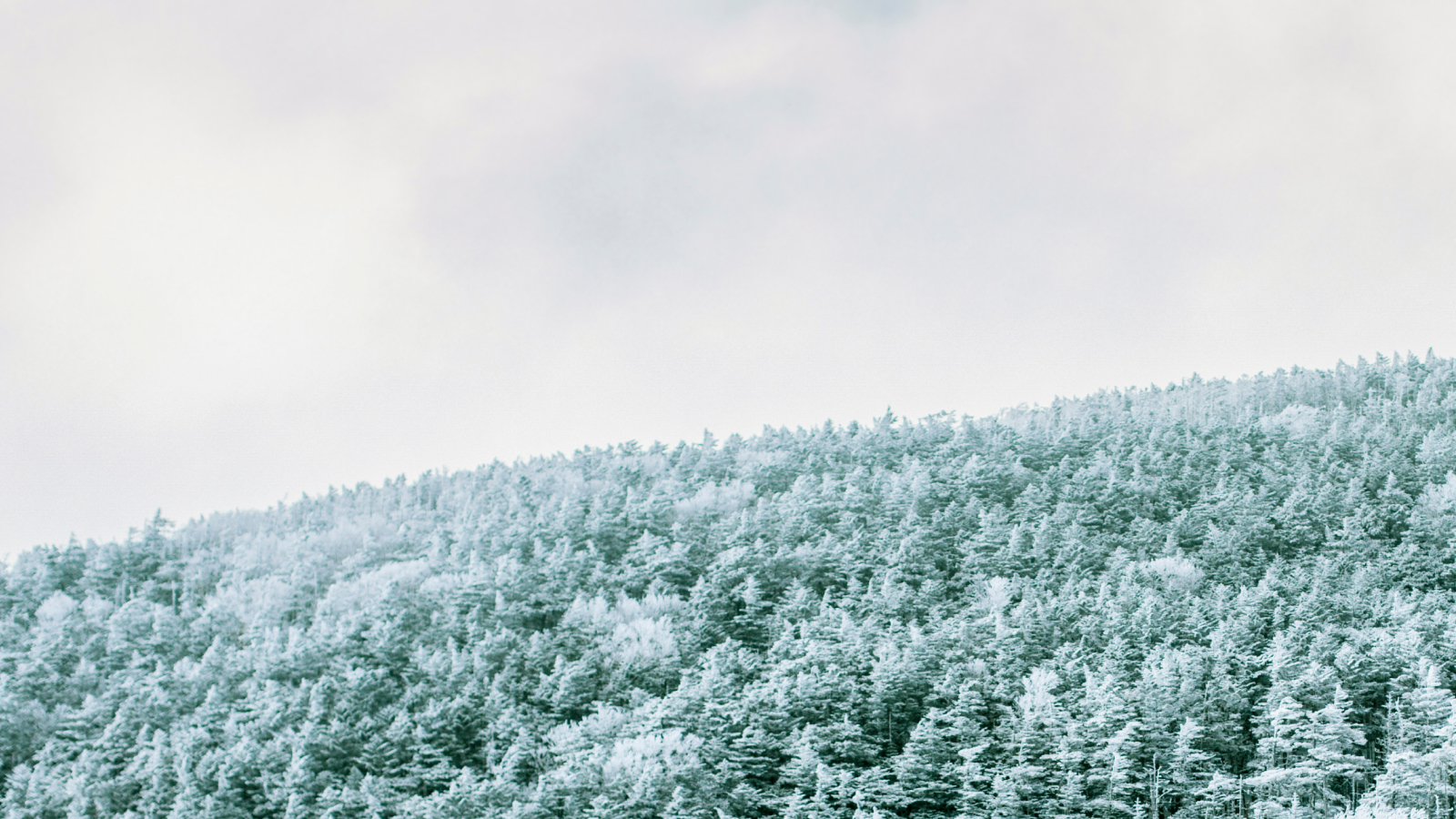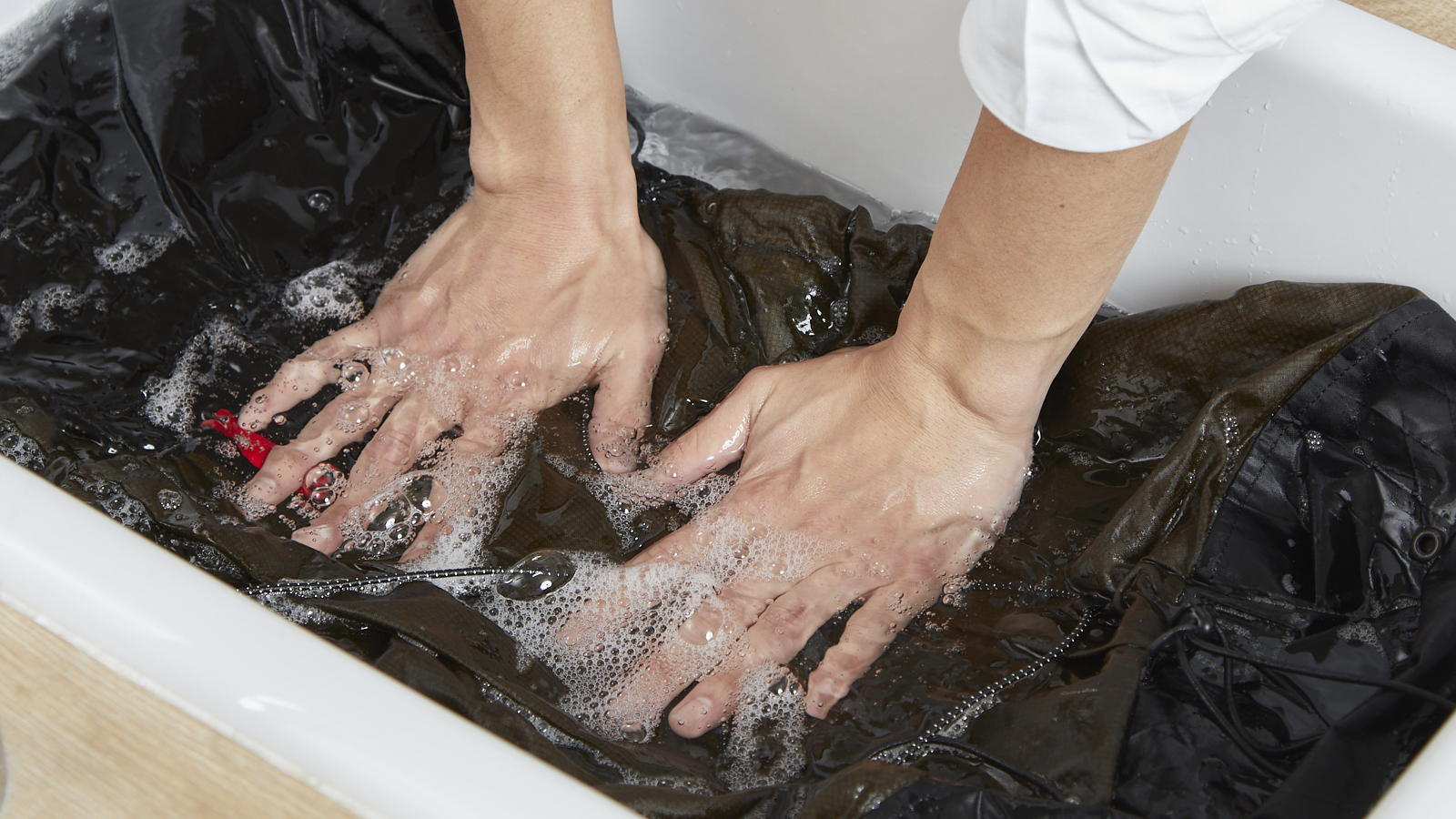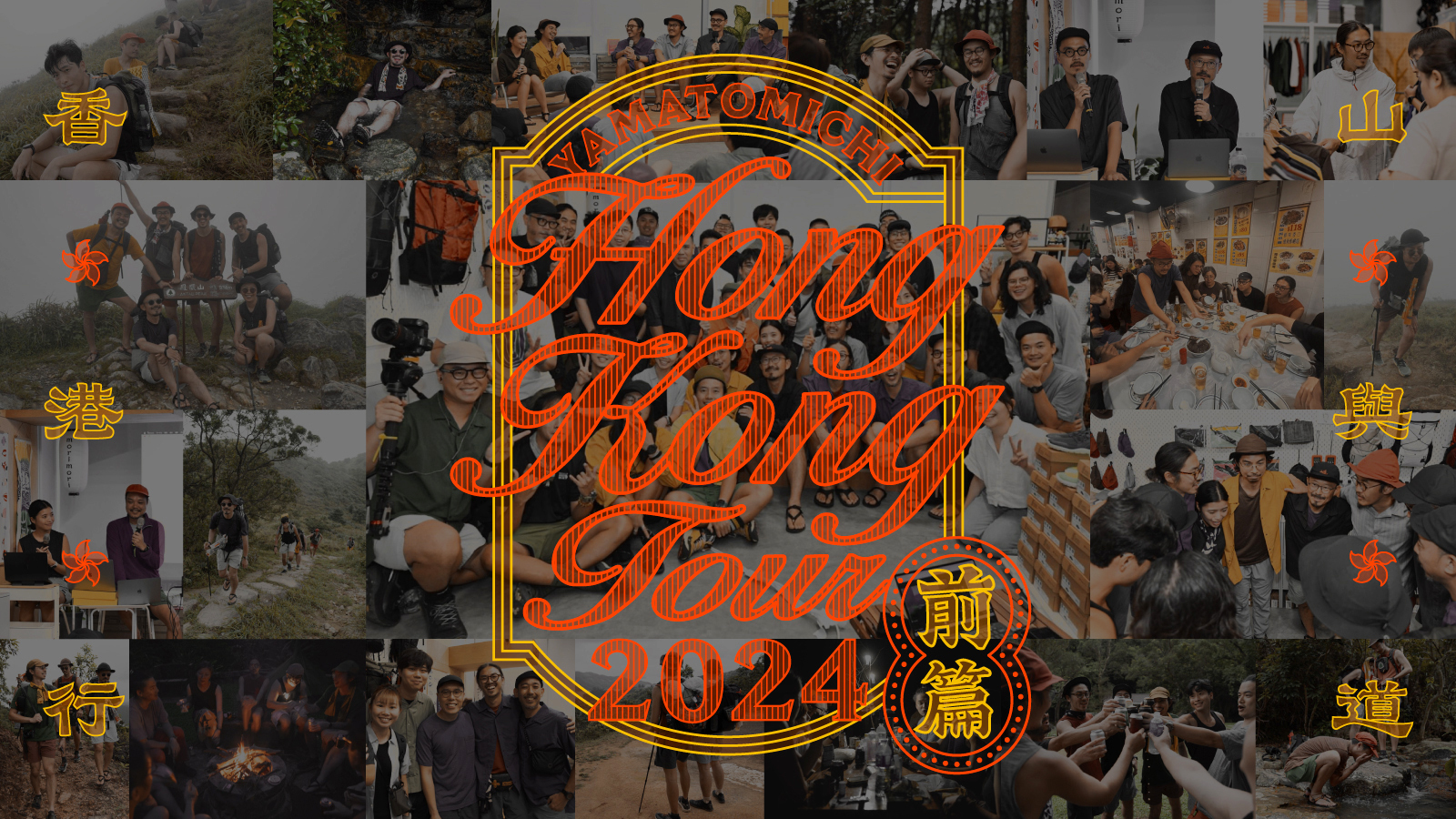Pop-Up at Morimori #2
Photography: Masaaki Mita, Shu Feng
Photography: Masaaki Mita, Donald Yang
Composition/Text: Masaaki Mita, Sangmi Lee
Donald Yang
Pop-Up at Morimori #2
Photography: Masaaki Mita, Shu Feng
Photography: Masaaki Mita, Donald Yang
Composition/Text: Masaaki Mita, Sangmi Lee
Donald Yang
In June, Yamatomichi held its first pop-up shop and event in five years in Hong Kong at Morimori, a select shop for ultralight hiking gear.
During this trip, we were able to experience more than just the event—we also hiked Hong Kong’s mountains and connected with local hikers, making it a highly meaningful journey. In this roundtable discussion, the participating members reflect on the details of the trip.
In this second half, we report on the main event: the pop-up at Morimori. Additionally, we delve into the current state of Hong Kong’s hiking scene through an interview with Morimori’s owner, Donald.
Reviving connections: Yamatomichi's first Hong Kong pop-up in five years
Mita: For this pop-up, Morimori replaced all of their products with Yamatomichi gear, which was really exciting. Since it was by reservation, everything ran smoothly, but there was a constant flow of customers who were really engaged and eager to explore our products. You could definitely feel the energy in the air.


Akira: From this day, Ko-kun also joined us from Taiwan.
Mita: Yes, Ko-kun (KOH BODY), who does illustrations and design for Yamatomichi, joined us along with JK’s wife, Peipei, from Taiwan, who helped as an interpreter. It was really interesting to have a team with Japanese, Taiwanese, and Hong Kong members working together.
JK: It was fantastic.
Mita: Ko-kun helped with customers so naturally, almost like he was part of the regular staff.
George: Peipei interpreted for me, and as she got used to the conversations, she started handling everything herself. Sometimes, I’d just be standing next to her (laughs). I don’t speak any English, which has been a source of stress at the Kyoto store, but this pop-up gave me the courage to try. I hadn’t taken that step before, but since coming back to Kyoto, I’ve become more proactive in engaging with international customers.

Taiwanese artist KOH BODY, who has been involved in Yamatomichi’s artwork and graphic design for many years, also joined as an interpreter.

JK’s partner, Peipei from Taiwan, also participated as an interpreter.
Mita: How was it interacting with the customers?
George: The customers were very attentive, listening closely to everything the staff had to say. But they didn’t necessarily make immediate purchases; I could tell they really took the time to assess everything carefully.
Akira: Everyone was so proactive in assisting customers that I didn’t have much to do myself, so during the pop-up, I’d sneak away to go hiking on my own (laughs). There was a trailhead about five minutes away by Uber. It’s really great how easy it is to access hiking spots in Hong Kong.

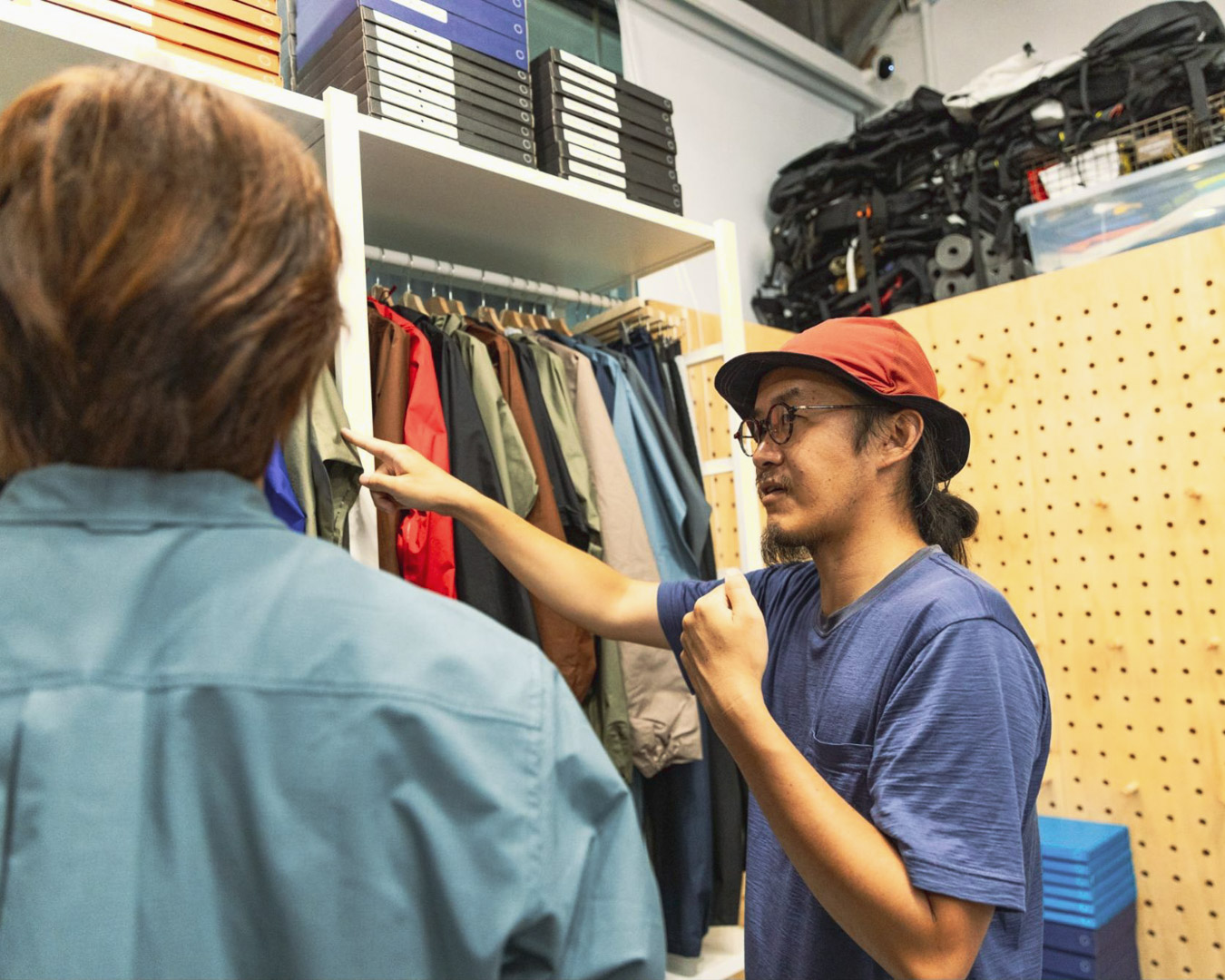


Kim: I was really struck by how many of the Hong Kong customers have been to Japan. Many of them said they visit Japan three or four times a year to hike—climbing the Northern Alps in the summer and snow-covered mountains in the winter.
Mita: Yes, they come to Japan more often than we expected, and they’re familiar with Japanese mountains and culture. One customer told me, “Japan has mountains, the sea, cities, and since it stretches north to south, even snow—you have everything!” I had always thought of Japan as small and narrow, but from Hong Kong’s perspective, it seems much larger. Since Hong Kong is so compact, many people travel abroad for vacation, and Japan seems to be a particularly popular destination.

Spontaneous mini-events, such as a “How to Use a Tenugui (hand towel)” workshop, were also held during the pop-up.

A stylish customer, dressed head-to-toe in pink—including their 5-Pocket Shorts, sandals, and even their hair—visited the pop-up. She mentioned that she had also hiked the John Muir Trail (JMT) in the US.

Each day in Hong Kong, Donald took us to amazing local restaurants for dinner.
A Talk event filled with energy and enthusiasm
Kim: On the second day of the pop-up, we held a talk event.
Mita: Akira gave an introductory presentation on Yamatomichi, and I spoke about the history of Japanese ultralight culture and garage manufacturers. We also had casual discussions with Kim, JK, and George.

A large crowd gathered for the talk event as well.
Akira: I focused on Yamatomichi’s philosophy with our gear and the fundamental principles of ultralight hiking. Essentially, I aimed to convey, “This is what Yamatomichi is all about.”
Mita: How did it feel? Did you get a good response?
Akira: I could really sense that everyone was listening intently.
JK: Yes, they were very engaged.
Kim: We also had about 200 people joining us online.

First, Akira gave an introductory presentation on Yamatomichi, with Ko-san providing simultaneous interpretation.

The presentation is also available as a JOURNAL: Ultralight hiking at the root of everything we do.
Akira: It was also really heartwarming to see so many customers wearing clothes printed at Kazama Naomi’s Big O live silk screening we did in Hong Kong five years ago.
Mita: Absolutely. We got to reconnect with many people we met back then. That was such a joy.
JK: It was wonderful to realize that they have been following our work all these years.
Mita: I felt that ultralight hiking culture has grown and taken root even more compared to five years ago.
Akira: I felt that too. When we presented five years ago, I was worried about whether our message was coming across. This time, I really felt it was well-received.
Mita: I also gave a presentation on the early days of ultralight culture in Japan, based on my article “A Brief History of Ultralight Hiking & Cottage Manufacturers in Japan Vol. 1” and people were very enthusiastic, asking lots of questions afterward. It’s exciting to think that what we started, inspired by influences from overseas and the U.S., might similarly spark inspiration here in Hong Kong, encouraging people to embark on something new.

Mita gave a presentation on “A Brief History of Ultralight Hiking & Cottage Manufacturers in Japan Vol. 1” with Peipei providing interpretation.

In the final segment, all the staff joined in an open and relaxed discussion about hiking in Hong Kong and other related topics.
A unified effort across Japan, Hong Kong, and Taiwan
Mita: Now that the pop-up event is over, how do you feel?
Akira: It was fantastic to work together as one team across Japan, Hong Kong, and Taiwan.
JK: Hiking together and getting to know each other before the pop-up really helped. It felt like we built something together as a unified team.
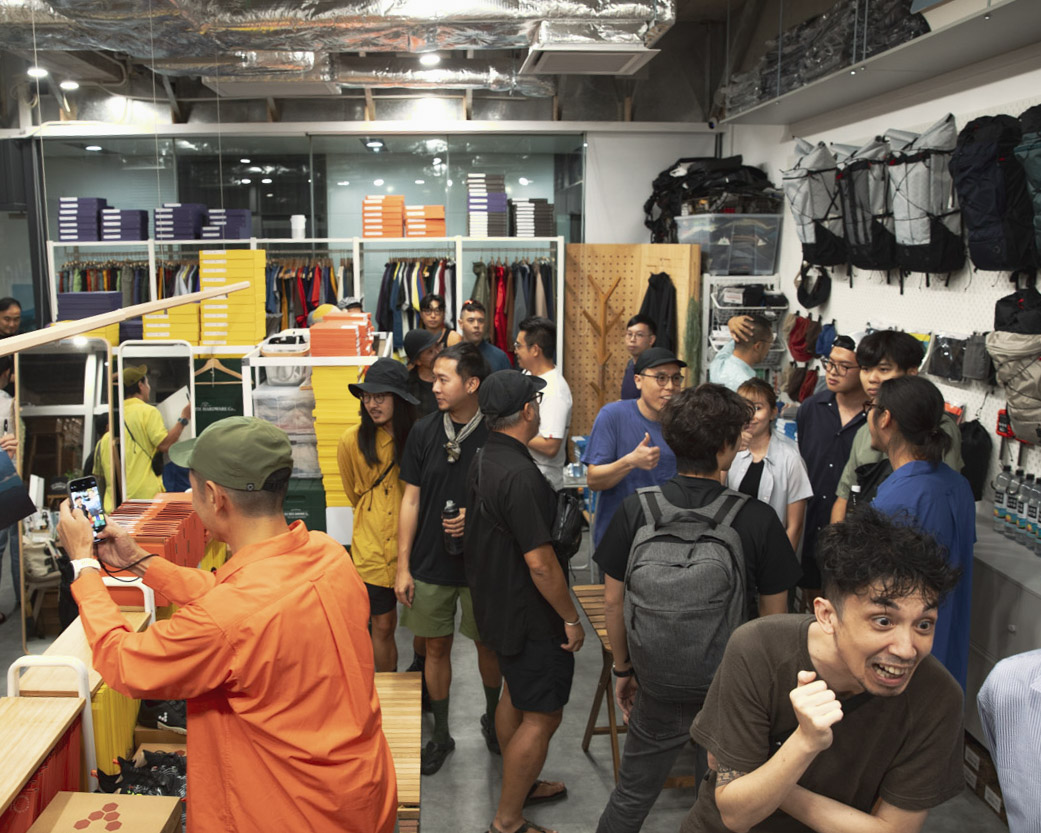
The enthusiasm continued into the social gathering after the talk event.
Mita: After the event, we had a social gathering, and everyone was incredibly enthusiastic there as well. People asked so many questions, and some even mentioned they’d read all of our JOURNAL articles, translating them as they went. I’ve never met anyone in Japan who’s gone into that much detail (laughs). People in Hong Kong are very open in expressing their interest and affection, which was really nice. There were also some local brand owners in their early thirties, all with great style.
Kim: It wasn’t just brand owners—there were also people who had built hiking communities, organizing hiking events and even cleanup activities. Seeing others our age working so passionately was truly inspiring.
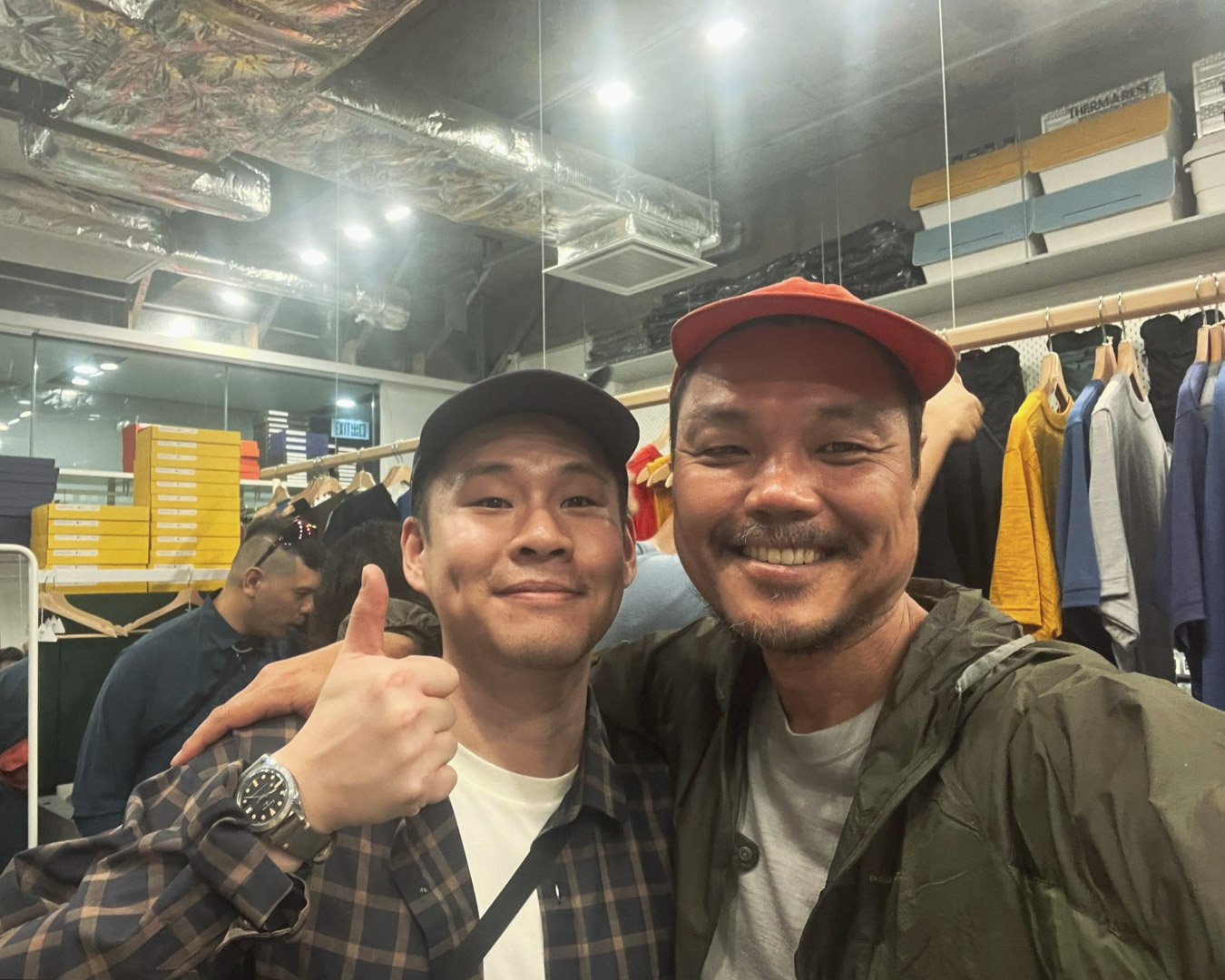
Since meeting five years ago, Mike, who runs the brand Proj.MT, has become like a younger brother to Mita in Hong Kong.

From the left: Milk, an influencer who runs HIKE EXIT; Kenneth, Editor-in-Chief of the Chinese edition of GO OUT; Sa from the running and hiking brand blackhill; and Sinclair, creator of ultralight shelters at OUNCE DESIGN.

With a group of customers who listened especially intently to the talk.

Also, TK and Jojo, whom we connected with five years ago, were there. Jojo even wore a T-shirt printed by Kazama Naomi from five years ago.
JK: It seems like a culture has really developed here in Hong Kong over the past five years.
Mita: Yes, Hong Kong has nurtured its own unique culture, different from Japan or Taiwan. The proximity between the city and the mountains probably plays a big role. And after the pop-up, Yamatomichi officially partnered with Morimori.
Akira: The deciding factor was the quality of the Morimori staff. George often mentioned how Wilson earnestly absorbed what he was taught and handled backpack sales as if he’d been doing it for years.
George: If I get the chance to visit Hong Kong again, I’d love to see how Wilson has grown. I’m really excited to see where he goes from here.
JK: With Morimori now carrying Yamatomichi, they might come to Kamakura for training, and we’ll visit Hong Kong too. Building this connection requires face-to-face interactions. I think our partnership with Morimori was made possible by Donald’s continued visits to Yamatomichi, which helped maintain the relationship.
Mita: With the partnership official, we’ll be able to connect even more closely with our customers in Hong Kong. This trip gave me a new reason to return, and I’m really happy about that.
Kim: It was great to meet dedicated partners there. It’s amazing to have another place I’m excited to visit again.
Akira: What stood out to me was when I asked Wilson why he joined Morimori. He said he’d initially reached out to Donald as a customer, asking about a product, and was moved by the detailed response. I think that Donald’s character draws others in as well, making them long-time customers. It’s something you really can’t understand until you experience it firsthand—it’s a fantastic community.
JK: Absolutely. I’m looking forward to building this connection further.
Mita: Well then, here’s to Hong Kong—Yang Boi (Cheers)!
Everyone: Yang Boi!

Interview with Donald Yang
owner of Morimori
How did you find our reflections on the Hong Kong Pop-Up Tour? We hope that the energy and enthusiasm we felt in Hong Kong came across in many ways. Finally, let’s hear from Donald, the owner of Morimori and our friend, as he shares his thoughts on his relationship with Yamatomichi, the acceptance of ultralight hiking in Hong Kong, and the local hiking culture.
Interviewer: Masaaki Mita
Interpreter: Peipei

Mita: You and Akira first met five years ago, and you’ve maintained that relationship ever since, right?
Donald: Yes, we first met five years ago at an event called HIKE / LIFE / COMMUNITY. There was a private camping gathering with the Yamatomichi staff, and my partner Ruby and I arrived past midnight, in heavy rain. Despite the weather, we connected well with everyone, and we established a great relationship. Later, I visited Japan for work, and Akira invited me to his home, and Mita took me hiking in around Kamakura. Then, during the pandemic, we couldn’t see each other for a while, but when we finally reunited in Japan, it didn’t feel like a long absence at all. Since then, every time I go to Japan, I make sure to visit Yamatomichi. I’m grateful that we’ve continued this friendship and that we can share a connection that goes beyond business.

In 2019, Donald visited Kamakura and met with Akira, JK, and Mita.
Mita: Absolutely! Hong Kong has a unique environment where the mountains and the city are so close to each other. How do hikers in Hong Kong enjoy hiking?
Donald: Because of the proximity between the mountains and the city, many people make hiking a regular part of their lifestyle. They don’t just go on weekends; some people hike after work on weekdays and then head straight to work the next morning. Of course, many also hike on weekends, but since the mountains here aren’t very large, most trips are one or two nights at most. Also, a lot of people wear hiking clothes as part of their everyday style.
Mita: Morimori carries many products from Japanese garage brands. Was it like that from the beginning?
Donald: Actually, when we first opened in 2017, we weren’t carrying ultralight hiking gear. But when I went hiking in Japan, I saw a lot of ultralight gear, and I thought it looked cool and really suited our taste. Gradually, our style and Morimori’s focus began shifting towards ultralight hiking. As I mentioned, many people in Hong Kong go hiking after work, so they want to keep their gear as light as possible. Also, homes in Hong Kong tend to be small, so having compact, easy-to-store gear is ideal. That’s why the ultralight style really fits here in Hong Kong.

Mita: There’s a lot of ultralight gear from the U.S. and Europe as well, so why do you focus so much on Japanese products?
Donald: Well, first of all, a lot of people in Hong Kong love Japanese culture. Japanese products have meticulous attention to detail, which is something people here really appreciate, and they also fit Asian body types well. American products are often designed for long trails, but Hong Kong has mostly shorter hikes, so Japanese products suit that need better. I think Japan now has more garage brands than the U.S. too.
Mita: That’s interesting. So, from Hong Kong’s perspective, it’s seen that way?
Donald: Yes, ultralight hiking caught on in Japan first, and it was introduced to Hong Kong through Japan. For Hong Kongers, ultralight hiking feels like something that came from Japan.
Mita: Really? I mean, I definitely sense how close people in Hong Kong feel to Japan. You can only really understand that by coming here. How do people in Hong Kong typically engage with Japanese culture?
Donald: Many of us have grown up watching Japanese manga, anime, novels, and films, so we’ve developed a sense of familiarity without even realizing it. Hong Kong people love to travel, and Japan is close, so there’s a lot of interest in Japan. My impression of Japanese people is that they approach everything with incredible attention to detail and a high sense of aesthetics. There’s no culture of copying others; every time I visit Japan, I see something fresh and unique. They’re creating things that reflect their own culture, which you can’t find anywhere else.
Mita: Is that feeling common in Hong Kong, or is it unique to you?
Donald: It depends on the person. In my case, I studied Japanese culture in university, so I’d say I’m one of the bigger fans (laughs).

Mita: How was this pop-up event for you?
Donald: First of all, I was incredibly happy. I think Yamatomichi’s visit helped convey to the people of Hong Kong that they genuinely care about this place. Having Peipei and Ko-san join us from Taiwan as interpreters was also great; working together as a team from Hong Kong, Japan, and Taiwan was a wonderful experience. My collaboration with Yamatomichi doesn’t feel like just a business arrangement—it’s about coming together with people I genuinely enjoy being around. This time, we became one team, working on something I’d always wanted to do, and that meant a lot to me.

Mita: It would be great if we could continue building this one-team spirit, including Taiwan, where Samplus is located. After coming back to Hong Kong for the first time in five years, I noticed a lot of people at the gathering yesterday who were running their own brands or communities. I could feel the culture and community expanding. How do you see it, Donald?
Donald: The environment here is different, so it’s hard to say if ultralight hiking will become as widely known as it is in Japan. But one thing is certain: I want to continue making Morimori a better place and spreading the ultralight philosophy and community further. There aren’t many people in Hong Kong who know the history of ultralight yet, so if we can expand that knowledge, I think more garage brands will start emerging here too. I’m optimistic about it.
Mita: We’d be happy to help with that wherever Yamatomichi can contribute.
Donald: Thank you. It would be wonderful if, as hikers, we could collaborate with people from various countries, regardless of borders!







